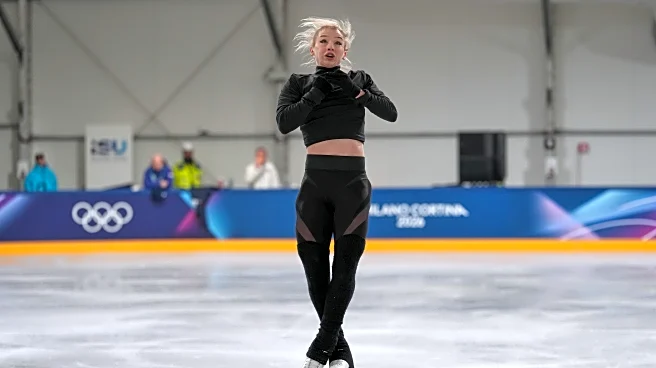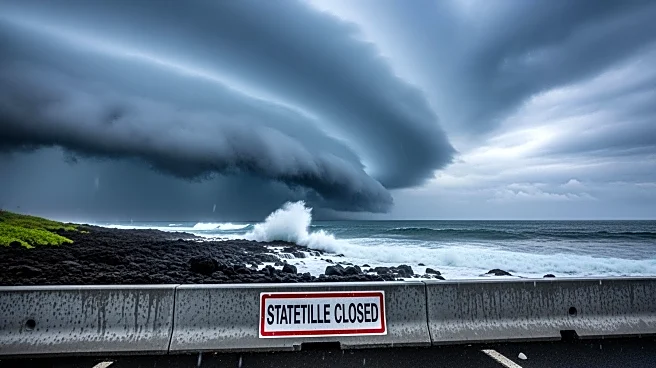Rapid Read • 8 min read
President Trump recently held a meeting with Russian President Vladimir Putin in Alaska, which concluded with a notably reserved press conference. Neither leader took questions nor provided detailed insights into potential cease-fire agreements to end the ongoing conflict in Ukraine. Former Secretary of State Mike Pompeo remarked on Trump's uncharacteristic reticence, suggesting that significant obstacles remain in achieving peace. House Foreign Affairs Committee Chairman Brian Mast noted that Trump's actions, such as the strategic flyover of B2 bombers, were deliberate signals to Russia about potential consequences. The meeting has been interpreted by some, including the nonprofit Razom for Ukraine, as a reaffirmation that pressure on Russia is necessary to achieve genuine peace.
AD
The meeting between President Trump and President Putin is significant as it underscores the complexities involved in negotiating peace in Ukraine. The lack of transparency and concrete outcomes from the meeting suggests that diplomatic efforts face substantial hurdles. The ongoing conflict in Ukraine has far-reaching implications for international relations, particularly between NATO countries and Russia. The strategic military signals sent by the U.S. indicate a readiness to support Ukraine, which could influence future geopolitical dynamics. Stakeholders such as European nations and humanitarian organizations are closely monitoring these developments, as they could impact regional stability and international security.
The next steps following the Alaska meeting are uncertain, but potential actions could include increased military support for Ukraine from the U.S. and its allies. The international community may continue to apply diplomatic and economic pressure on Russia to encourage a cease-fire. Observers will be watching for any shifts in Russia's military strategy or diplomatic posture. Additionally, further meetings or negotiations may be scheduled to address the unresolved issues highlighted by the recent discussions.
The meeting also raises questions about the effectiveness of diplomatic engagements with Russia and the role of international pressure in conflict resolution. The ethical implications of military strategies, such as the use of strategic flyovers, are also a point of discussion. Long-term, the situation could influence global perceptions of U.S. foreign policy and its approach to international conflicts.
AD
More Stories You Might Enjoy












